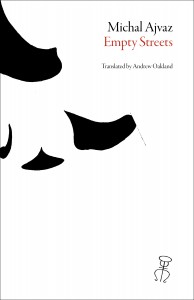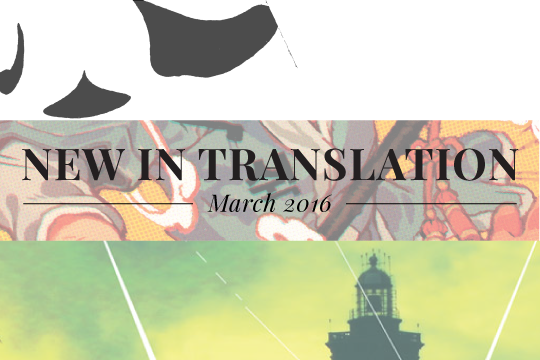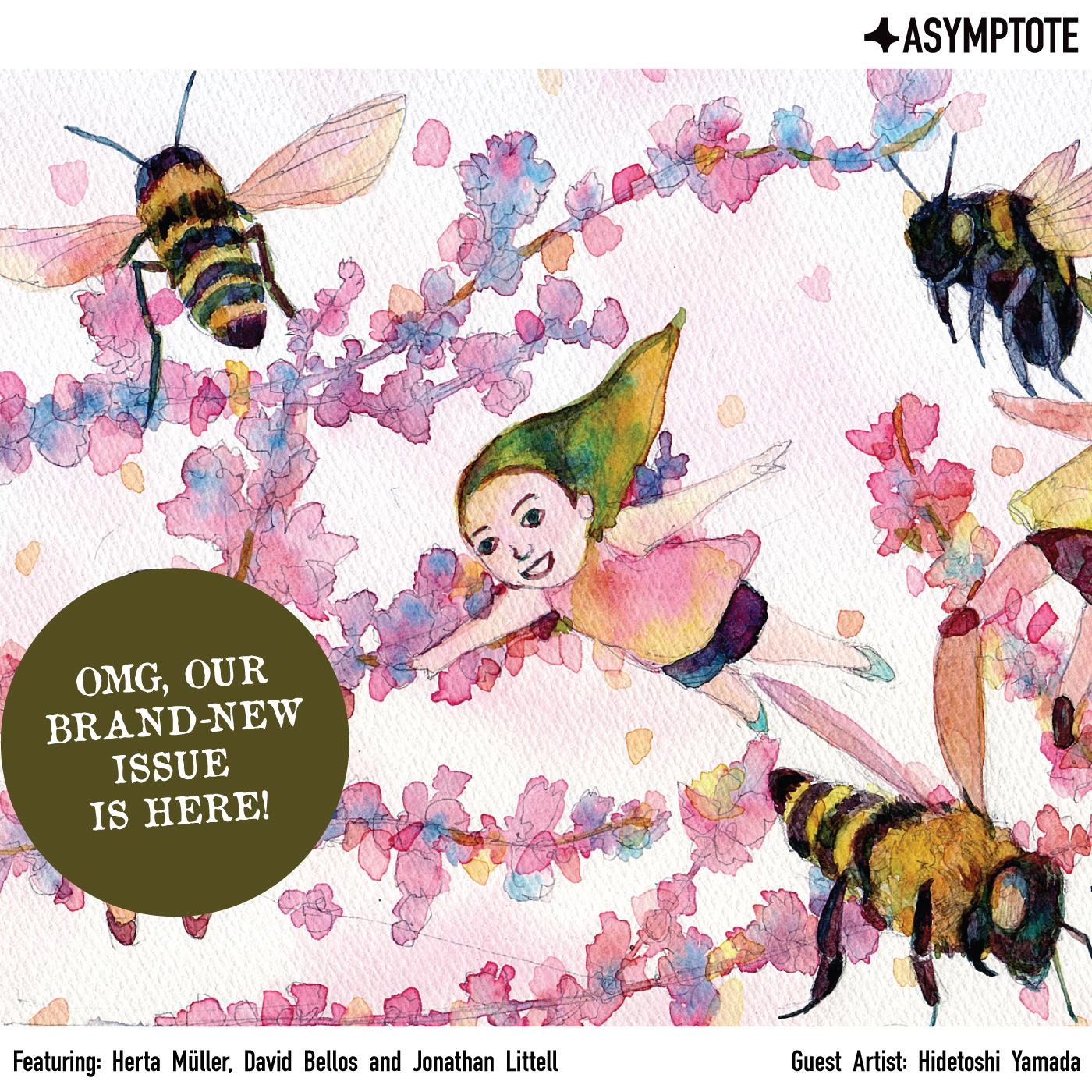Michal Ajvaz, Empty Streets (Dalkey Archive). Translated by Andrew Oakland—review by Ellen Elias-Bursac, Contributing Editor

Empty Streets, originally published in Czech in 2004, sets its writer-protagonist out on a search for a missing woman. However, in typical Ajvaz fashion, the quest begins as a search for a mysterious symbol. Early in the novel, the unnamed narrator stumbles, literally, on a double trident, a three-foot-long object that pierces his foot while he’s walking through a dump. This kicks off a sequence reminiscent of “This is the house that Jack built”: a double-trident logo appears a few days later when the narrator is using his friend’s computer; the friend tells the story of spotting the symbol in a mysterious painting; the owner of the painting, an elderly literary professor, tells him about the work of art and also adds a story about the disappearance of his daughter, whom he asks the narrator to find; the search takes him to the painter, who tells the narrator a story about . . . and so on, from one playful and inventive twist to the next, through 14 stories over the course of 470 pages.
In keeping with the novel’s sense of abundance, the prose brims with sensory experience in passages that translator Andrew Oakland renders with delicacy and precision. Notably, Oakland also leaves room for the narrator’s lack of precision, in instances like the “strange fragrance, one that is terribly difficult to describe” which he says has “several components including the scent of roses and the sharp smell of steel.” Similarly, when describing sound, the narrator says he “unpicked from the blocks of silence various rustlings, creakings, something somewhere knocking into something, something rolling around something and then stopping, something pointed that was scratching, something crumbling”—all noises that “might have been tiny sounds on the outer wall of a house, or a din softened by a great distance.”
But most pervasive are images of light and shadow, such as the observation of a sunset descending on the city, leaving only the upper-floor balconies in sunlight: “I had the feeling I was looking up at a distant shore from the bottom of a deep lake whose waters were crystal-clear.” READ MORE…



